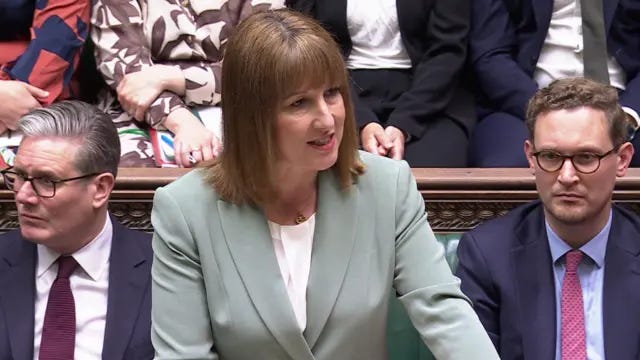Labour's real test after this Spending Review lies in what voters think
Spend, spend, spend: that's the strategy the Chancellor and Prime Minister are banking on. But what will ordinary Britons make of it?
Cash, cash, cash, folks. That’s the plan. A return to the austerity of the old days of David Cameron and George Osborne, this is not. There is no doubt that quite a few of Rachel Reeves’s spending plans announced in the Commons today will be worthwhile for Britain in both the short- and long-term.
NHS day-to-day spending in England will rise by three per cent per year, equating to an annual increase of £29 billion each year for the health service until the end of this parliamentary session. If it is matched by an ambitious programme of reform which the Health Secretary, Wes Streeting, has arguably begun (with the abolition of NHS England as a body), then the results could be even more fruitful for patients and the government alike.
There were further investments towards our national security, bringing by 2027 a commitment to spend 2.6 per cent of GDP on our defences, something much-needed in this uncertain epoch, although Britain needs to make even greater strides towards three per cent. More than £14 billion is to be allocated to the Sizewell C nuclear power plant in Suffolk, a project which, in and of itself, sums up the defeatism and lack of consistent building over which our politicians have presided for decades. Let’s hope it can be delivered once and for all.
£39 billion from the Chancellor came for affordable and social housing over the next decade (£3.9 billion per year). Housing remains a policy area which, again, needs further inspection as Britain has built so few homes for future generations. The challenge, though, will be whether they are truly affordable.
Some departments have taken a hit, not least the Home Office (1.7 per cent) and the Foreign Office (6.9 per cent), although the Chancellor affirms that overall departmental spending day-to-day will increase by 1.2 per cent over the next three years.
But overall, what difference this will make to the electorate is hitherto unforeseen. Many voters, unfortunately for the Chancellor, will have taken little notice of the Spending Review, as such fiscal events often inspire little interest amongst ordinary folk. The real test for Labour, however, lies in whether these proposals, as with last October’s Budget, deliver positive, material change.
And unfortunately for all those Labour MPs whooping Rachel Reeves this afternoon, it will inevitably take some time before today’s proposals take real effect on the lives of voters, good or bad. As ever in British politics, the proof will be in the pudding.

